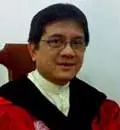RETIRED Chief Justice Reynato Puno who, during his incumbency both as associate justice and later chief magistrate of the Supreme Court, penned many decisions — usually carefully and exhaustively argued — submitted a position to the Senate committee on constitutional amendments and revision of codes, the same committee to which I too submitted a position paper, having been asked to do so. Chief Justice Rey's position is interesting in its refreshing reading of the Constitution that may just offer a way out of the impasse in which the discussion currently finds itself.
He draws a distinction between Congress passing laws and Congress convened as a constituent assembly. In the passage of a law — ordinary statute law — the members of Congress vote according to the characteristic apportionment of representative authority: the congressmen vote as representatives of their districts, and the senators vote as members of Congress having been elected to office at large. Because of this, there is a need for one chamber to check the other — the Senate, to check against regressive parochialism, and the House of Representatives, to champion the interests of their districts. It is a different story, he argues, when Congress is convened as a constituent assembly, for then "the members cease to represent any particular interest that may collide with each other." All become representatives of the interests of the people presumably consecrated to the cause of the common weal. "In fine, when members of Congress meet to amend or revise the Constitution, they do not tackle such trivial matters as the need to change the names of our streets, but to discuss the loftiest of ideas on how to promote the common good."
Continue reading with one of these options:
Ad-free access
P 80 per month
(billed annually at P 960)
- Unlimited ad-free access to website articles
- Limited offer: Subscribe today and get digital edition access for free (accessible with up to 3 devices)


